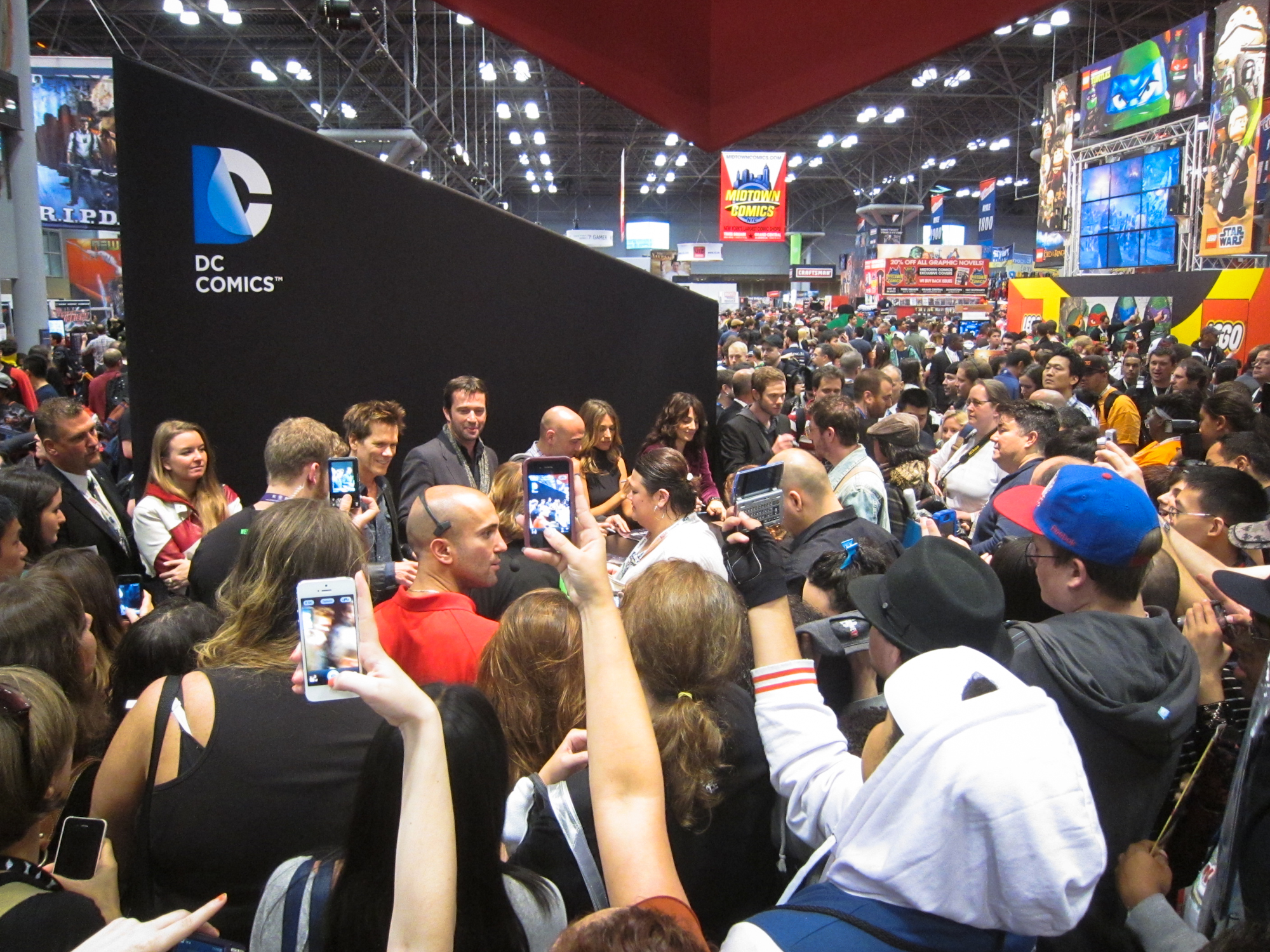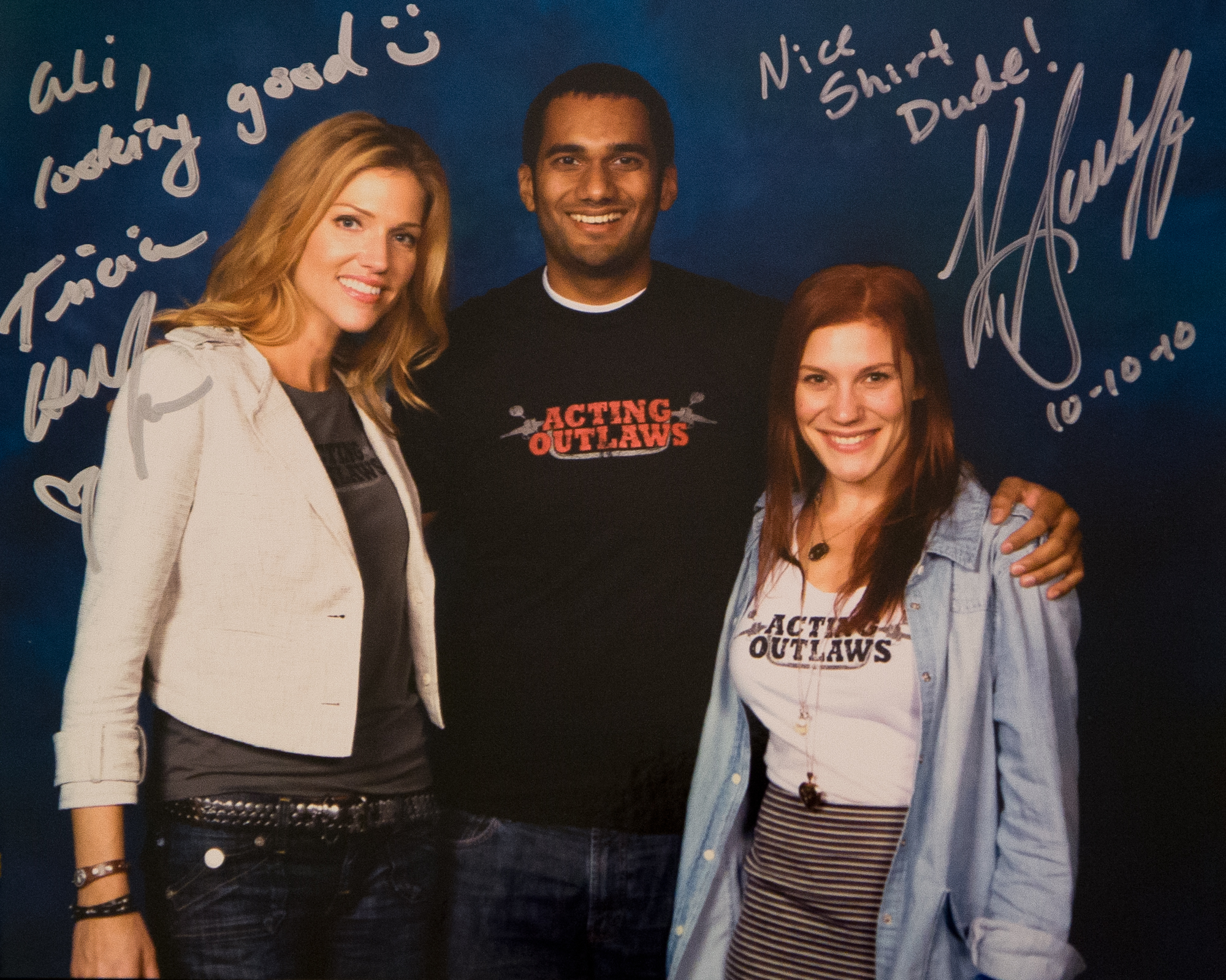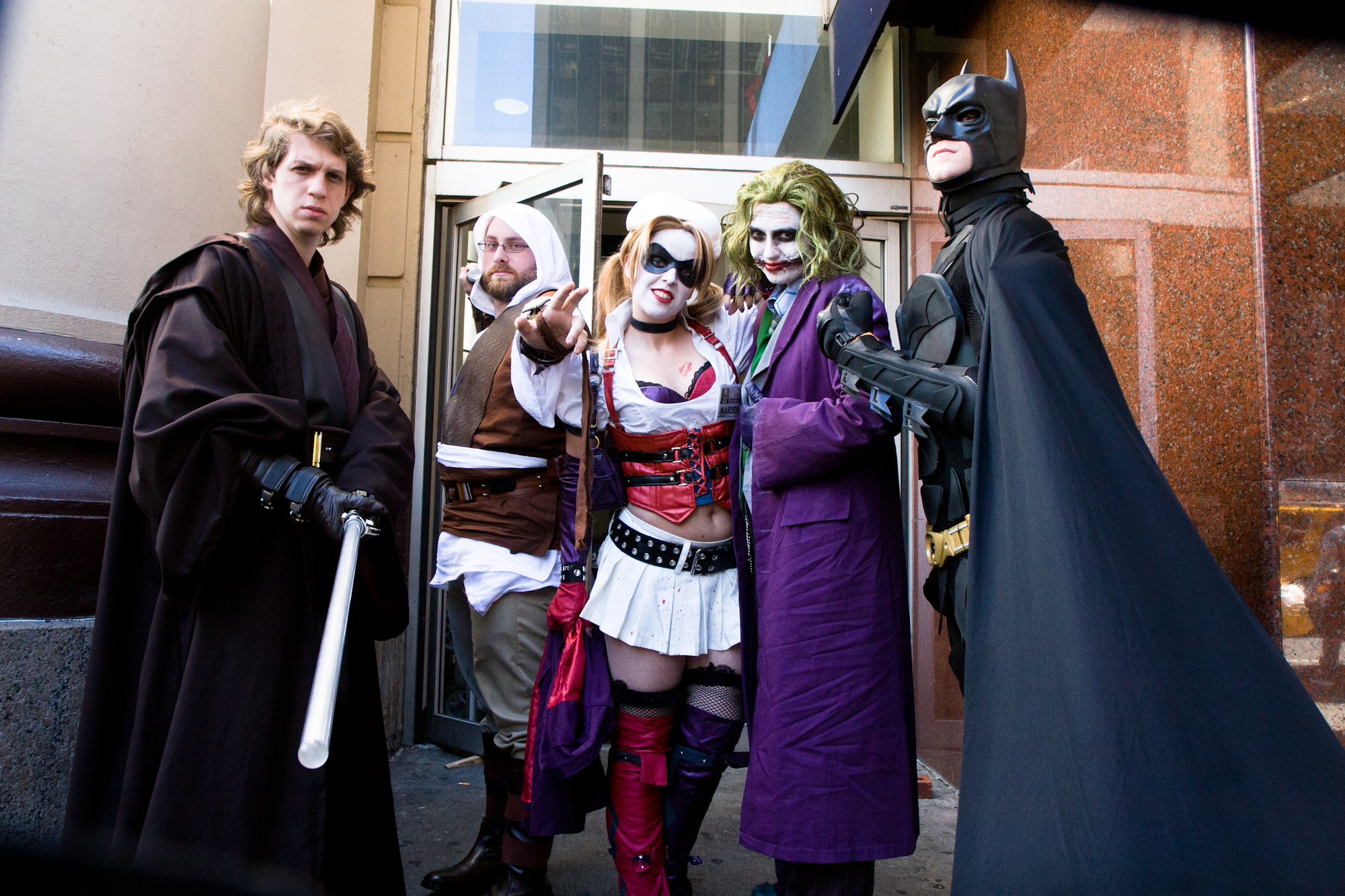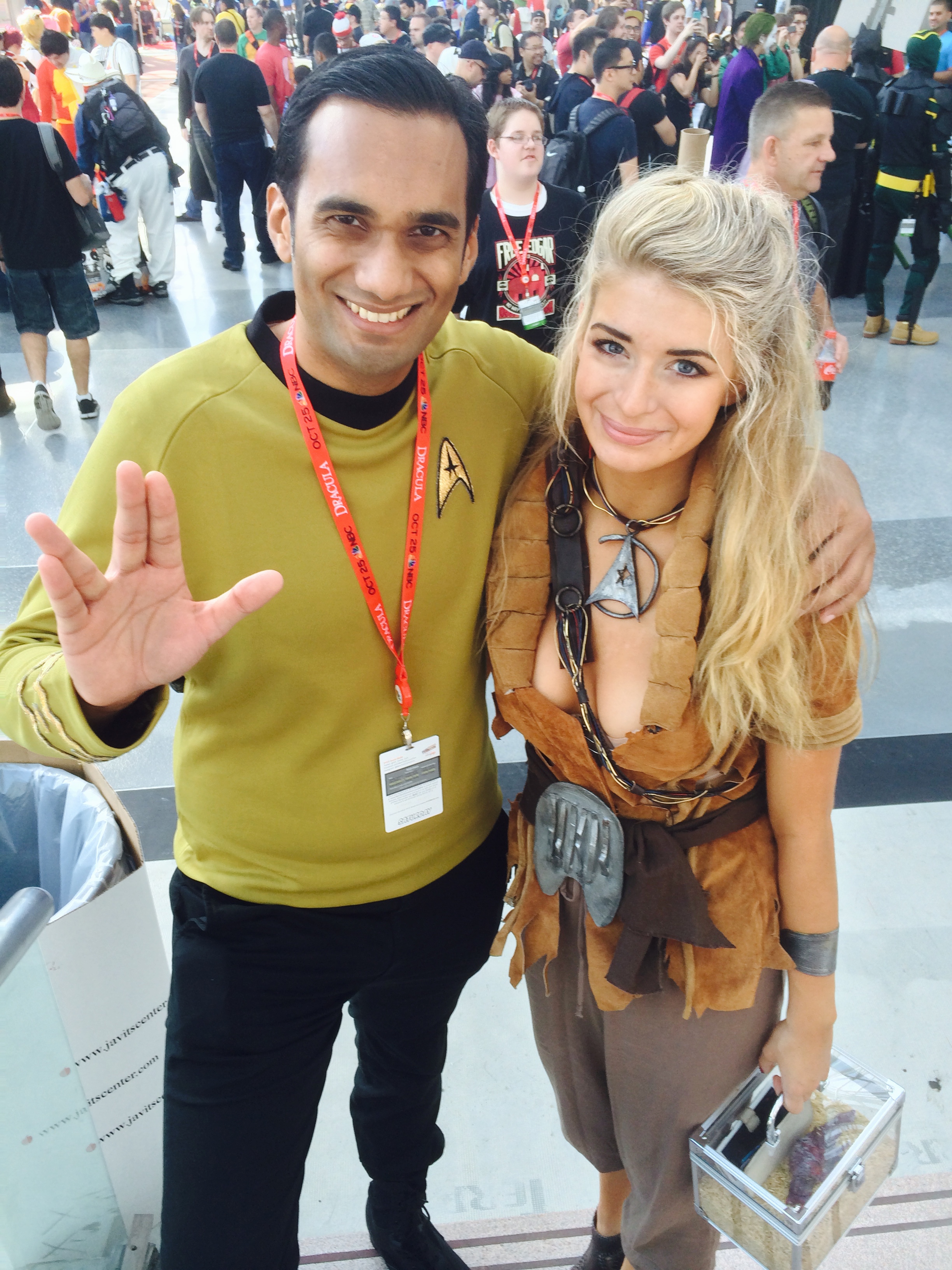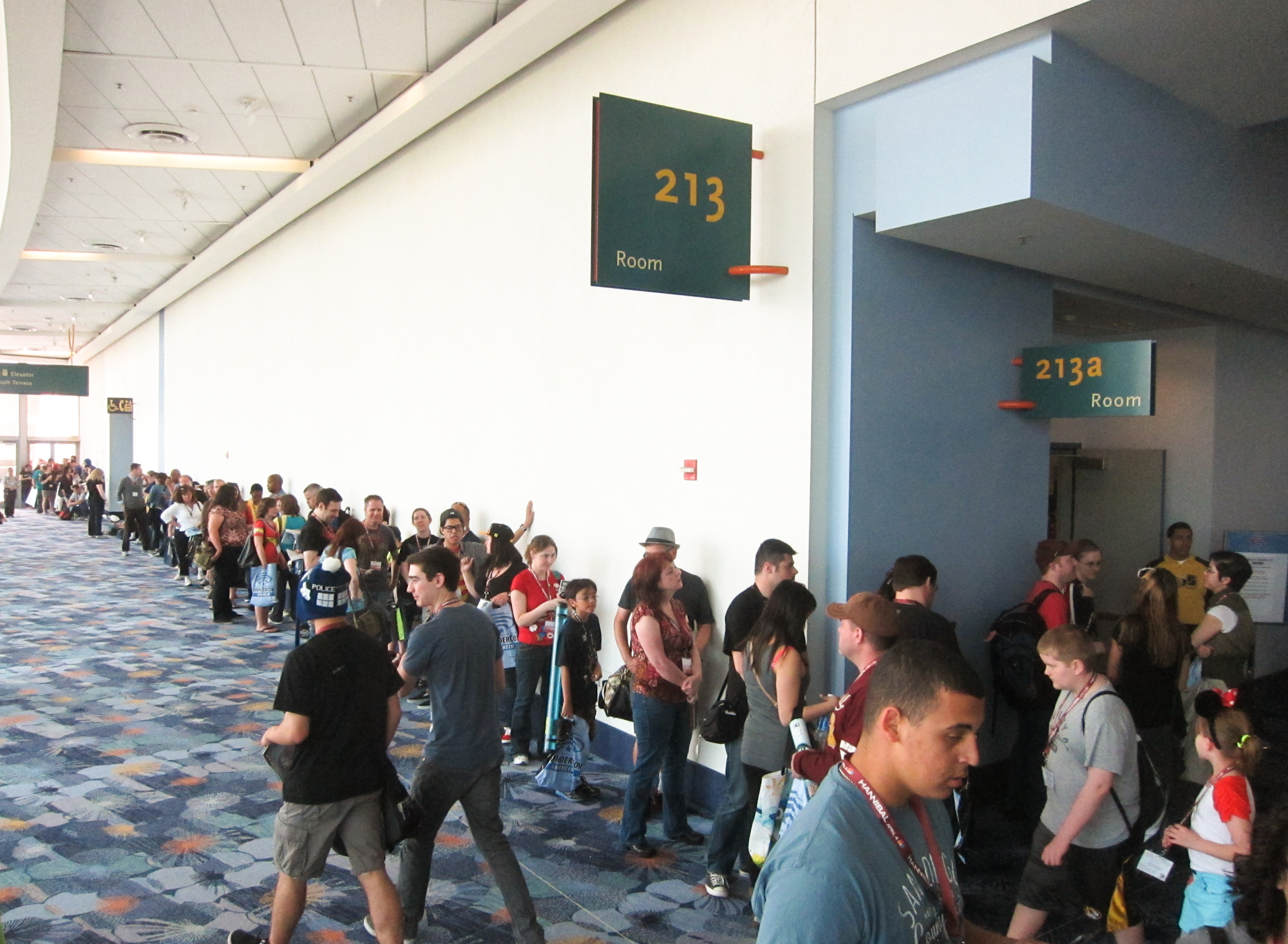When non-geeks find out I'm a geeky psychologist, we always end up talking about comic-cons.
"What's the deal with all those weird people who dress up?"
"You mean cosplay?" I reply. "It's a cool way to celebrate a character you love, kinda like Halloween. I cosplay as Captain Kirk all the time."
"X-Men and the Avengers are cool but I'm not one of those loners who can't separate fiction from reality."
It always bums me to hear that, people discounting something they haven't tried.
"Comic-con people are actually really friendly. Some of the coolest people I know I randomly met at a convention."
And then there’s my favorite...
"There's got to be something wrong with people who go to comic-cons! Why would anyone stand in line for hours just to see a glimpse of a new movie?"
"People stand in line for all kinds of things they're excited about like a special sale, a new amusement park ride, their favorite band, or a big sports game."
Since this conversation keeps coming up, I wanted to set the record straight and share my guide to geek conventions. I present to you now the good, bad, and ugly psychology of comic-cons.
What’s comic-con?
Comic book conventions are just one type of fan gathering. There are others – Star Trek conventions, Star Wars celebrations, video game and tabletop gaming expos, anime conventions, and many more. Regardless of the focus, they're all organized the same way. You can attend panels to learn about a topic, see celebrities, talk to artists and writers, shop at huge exhibit halls, and meet people who like the same stuff you do.
Some of my favorite memories from past comic-cons:
What separates comic-cons from other fan gatherings is how popular they've become. Take San Diego Comic-Con for example. It started as a small meeting of 300 people in 1971 and grew to fit into the San Diego Convention Center in the 1990s. Everything changed in the early 2000s when X-Men and Spider-Man launched the superhero film genre. Soon after, Hollywood moved into San Diego Comic Con to promote their films directly to fans. As a result, San Diego Comic-Con has grown to become the largest fan gathering in the United States with over 130,000 attendees. It’s also expanded beyond comic books and focuses on all aspects of pop culture.
A beginner's guide to comic-cons:
San Diego Comic-Con's formula is being replicated across the world. While they vary in size and quality, chances are there's a comic-con happening near you sometime soon. For better or worse, we're in the middle of a comic-con explosion right now (read more about that at the SDCC Unofficial Blog).
The good: It’s all about people
The main reason most people go to a comic-con is to meet people.
Surprised? Don’t be. The stereotype that geeks are loners who don’t care about social interaction is completely false. Geeks love making new friends and comic-cons make it easy to find other people who love the same things you do. It’s like baseball fans going to a sports bar on game day.
Hanging out with my friends is always the best part of comic-con. San Diego Comic Con 2013.
Wanting to connect with people is hard-wired into our psychology. It might even be our most important evolutionary advantage as a species. The brain prioritizes social relationships so much that when it’s doing nothing, the brain’s default setting is to keep itself prepared for social situations. That’s why it’s so easy to strike up a conversation at a comic-con – our brains are always ready to talk about our geeky interests.
That’s one of the coolest things about conventions – they lead to new friendships. From Geek Therapist Josué Cardona to Larry “Dr. Trek” Nemecek and film journalist Aaron Neuwirth, I’ve met a ton of cool people at comic-cons. We know friendships improve immune system functioning, increase lifespan, and are the most important part of recovery from traumatic experiences. I can personally attest to this because comic-cons helped me grow as a person.
Our social brains are also the reason why so many people are interested in seeing celebrities at comic-cons. We’ve evolved to stay up to date on what our friends and acquaintances are up to. Because we see celebrities on TV, films, and websites all the time, our brains think of them as being part of our social network. Sitting in on a panel with Robert Downey Jr. or getting an autograph from Zoe Saldana is just another way of connecting with people you care about.
But there’s more to the celebrity stuff. Comic-cons give you the opportunity to talk directly to content creators. If you sit in on enough panels, you’ll notice a pattern – fans talk about how much a particular story means to them. Battlestar Galactica, next to being one of the best scifi shows of all time, means a lot to me. It helped me cope with a stressful period of my life. I also use it in my lectures to talk about the psychology of gender, politics, war, and peace. That’s why I go out of my way to meet actors from Battlestar Galactica at comic-cons. I want to thank them for their part in creating a story that has brought me so much joy.
Gratitude has been described as a “super emotion” that not only helps the person expressing it but also lifts up the mood of all those who witness it. In experimental studies gratitude has been shown to undo negative emotions, make positive emotions last longer, improve resilience to stress, increase helping behavior, and improve physical health. It’s not just attendees who experience gratitude at comic-cons, but celebrities too. Here’s what Joss Whedon had to say about attending San Diego Comic-Con:
Someone will say, “You helped me through a hard time in my life with this show.” For a long time I thought, “That’s so sweet and lovely they’re responding to the work.” And then I realized, “Oh, I was helping me through a hard time with that show, too.” I was a different version of them. We’re almost like a support group.
Part of collecting and cosplaying is also about expressing who you are in social situations. People buy stuff for 3 main reasons – to get tools, increase safety, or build an identity. Buying toys, t-shirts, posters, and collectibles communicates to the world who we are and what we care about (though sometimes we can get carried away). That’s also why people cosplay – it’s a public celebration of a character that means something to you. For more on that, check out Andrea Letamendi and Robin Rosenberg’s research on the psychology of cosplay.
The Bad: Comic-cons exhaust your body, mind, and wallet
Comic-cons are exhausting experiences.
People are on their feet all day, walk miles across a convention center floor, and eat bad (and overpriced) convention center food. Lots of attendees get dehydrated because they just don’t get enough water. All of this makes people feel weak, dizzy, and confused.
Combine physical exhaustion with massive crowds and it makes sense why so many people feel stressed at comic-cons. Anxiety at comic-cons can be triggered by thinking that you have no where to escape to, feeling like it’s hard to breath, being stuck in a crowded space, and hot flashes or cold chills. People with an anxiety disorder, especially panic disorder or agoraphobia, might have an especially hard time (for a good discussions about this, check out Wil Wheaton’s blog).
The overall convention experience can wear you down. New York Comic Con 2010.
Most of the time, if you stick with the situation long enough the anxious feeling will disappear. Sometimes all you need is a break, some water, or a snack. If the convention offers it (like PAX East did this year), take advantage of the wellness rooms for a break from the crowds. If the feelings don’t disappear and these types of situations are always hard for you, then you might want to consider additional help before your next comic-con adventure.
There’s also the horror of waiting in a lot of very long lines. Research has shown being bored while in line, not knowing how long you’re going to be in a line, and not knowing if you’re going to make it into the thing you’re waiting for makes people agitated. This stuff happens ALL THE TIME at comic-cons. I waited 2 hours at New York Comic Con to see a Walking Dead panel. I didn’t get in, was really upset, and felt like I wasted my afternoon.
Everything at a comic-con has a long wait. WonderCon 2013.
Turns out how you feel at the very end of a line is very important – if the line speeds up or it took less time than anticipated, you feel really good about the experience no matter how long you waited. If the line ends badly, you’re going to be very upset at the people responsible. Disney has mastered this kind of stuff – they advertise longer wait times than reality so you think the line went by faster than it did, their queues are full of entertaining stuff so you’re not bored, and the length of a line is always hidden so people aren’t turned off by the sight of an enormous slow moving line. Comic-cons could benefit from copying Disney’s tactics.
Want to avoid the drain of lines? Find something to occupy yourself (like comic books). Or better yet, make a friend by talking to the person next to you. Not only does is that person also excited about whatever you are waiting for, but lines feel like they’re moving faster when you’re with a buddy.
I cope with long lines by getting to know the people around me. San Diego Comic Con 2013.
Some of the longest lines at comic-cons are to purchase exclusive products. These are usually collectibles that are in limited supply and only available at the convention. These situations make you feel scarcity, like you don’t have as much of something you need. Scarcity of anything, whether it’s a ticket to the convention, an exclusive action figure or a variant cover, literally gives us FOMO (fear of missing out). We believe exclusive items are very important, we constantly think about them, and our willpower drops when we are around them. Scarcity is part of our brain’s basic software – if something near us is important and rare, we’ve learned to take advantage of it now because this opportunity might not come again. It’s the same stuff that goes into the psychology of Black Friday (the biggest shopping day in America).
How do you attend comic-con without draining your wallet? Do you research and check out comic-con exclusives way before the convention. Make a list of what you really want and then set aside some extra money for impulse buys. If you want to stick to your budget, keep cash in your wallet and hide your credit card for emergency use only. When you’ve got everything on your list and you’re out of cash, leave the exhibit hall.
The Ugly: People can do horrible things in large groups
It's easy to feel lost in a crowd at comic-cons. New York Comic Con 2012.
People are capable of doing very ugly things when they feel anonymous in a large group.
Over the last few years, there’s been a lot of discussion about harassment at comic-cons. At 2013’s New York Comic-Con, a TV crew harassed a series of mostly female cosplayers. Just a few months ago, a sexist t-shirt labeled “I like fangirls how I like my coffee – I hate coffee” was found at WonderCon. Then there’s the constant unwanted physical contact and verbal harassment that makes it unsafe for many women to cosplay. None of this is specific to comic-cons, it’s part of a larger sexism problem in the geek community (and it’s a lot worse online).
Check out Jennifer Landa’s awesome “fake geek girl” satire:
Why does this kind of stuff happen at comic-cons? Very large gatherings like the big comic-cons (San Diego & New York Comic-Con), concerts (Coachella), parades (Mardi Gras), and sporting events (World Cup) can lead to deindividuation. People feel anonymous, like they’re a part of a crowd and not an individual person. This makes it easier for people to do stupid things because they’re not worried about what other people will think of them. It also makes people very emotional and easily influenced by what others are doing. Deindividuation is a lot worse when drugs or alcohol are involved (which is a problem at concerts, parades, and sports, not comic-cons). Lack of sleep can also increase the risk of deindividuation (that is a problem at conventions).
Deindividuation isn’t necessarily a bad thing. It all depends on what’s happening around you. If someone is in danger, a few people standing up to help could lead to a surge of support from a crowd. But if no one stands up against harassment, others will join in and the problem continues. For us to remove this ugly behavior from conventions, we have to engage the whole geek community and make it clear that harassment won’t be tolerated. The science here is definitive – all it takes is one person to speak up against harassment in a crowd to change the entire dynamics of the group.
When it's good, it's great! When it's bad, it's still pretty good.
Yes, bad things can happen and the whole experience of comic-con is exhausting. But when you read what people remember most about comic-con, they’re powerful examples of gratitude, altruism, and comradely. Comic-cons help people connect, be true to themselves, and grow. The best cons, like San Diego Comic-Con or DragonCon, expand to citywide celebrations. But even the small neighborhood conventions give you a chance to meet cool people. That’s why I love the current explosion of comic-con culture – they’re making the world a better place. As Neil deGrasse Tyson said:
“If Comic-Con people ruled the world, the future would be invented daily and warfare would be nothing more than bar fights with toy lightsabers. That is the world I want.”
For more on the psychology of comic-con, check out my live discussion with the Unofficial SDCC Blog, download their audio podcast, or watch THE PSYCH SHOW below.


